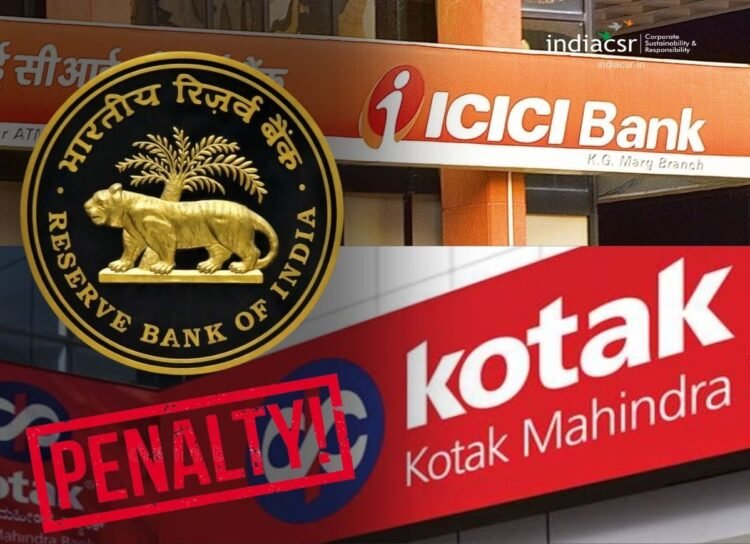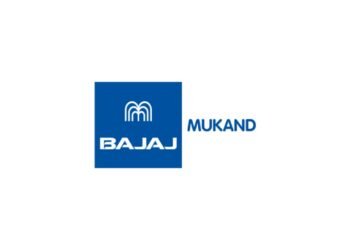- ICICI Bank faces a Rs 12.19 crore penalty for violating banking regulations, including the sanctioning of loans to companies where its directors held positions and failure to report frauds in a timely manner.
- Kotak Mahindra Bank has been fined Rs 3.95 crore for non-compliance with RBI directives on outsourcing, loan disbursement practices, and customer service, reflecting lapses in risk management and adherence to regulatory norms.
In a recent regulatory move, the Reserve Bank of India (RBI) has imposed substantial monetary penalties on two prominent Indian banks. ICICI Bank Ltd has been slapped with a hefty Rs 12.19 crore fine, while Kotak Mahindra Bank Limited faces a Rs 3.95 crore penalty. These punitive actions are the result of non-compliance with specific banking regulatory norms, as announced by the RBI.
ICICI Bank’s Regulatory Breaches
Loans to Insider-Linked Companies
ICICI Bank found itself in hot water due to its contravention of banking regulations, specifically sub-section (1) of Section 20 of the Banking Regulation Act, 1949. This was compounded by the bank’s violation of directions issued by the RBI regarding ‘Loans and Advances – Statutory and Other Restrictions.’ Notably, ICICI Bank had sanctioned loans to companies where two of its directors also held directorial positions. This raised concerns about potential conflicts of interest and a lack of transparency in the bank’s operations.
Non-compliance with Fraud Reporting
Additionally, ICICI Bank failed to adhere to RBI’s directions concerning ‘Frauds Classification and Reporting by Commercial Banks and Select Financial Institutions.’ The bank neglected to report frauds to the RBI within the stipulated timelines, potentially exposing shortcomings in its risk management and compliance procedures.
Kotak Mahindra Bank’s Regulatory Lapses
Kotak’s Outsourcing and Risk Management
Kotak Mahindra Bank, on the other hand, faced a penalty for non-compliance with various RBI directions. The bank fell short in implementing ‘Managing Risks and Code of Conduct in Outsourcing of Financial Services by Banks.’ This signaled inadequate risk management practices when outsourcing financial services.
Loan Disbursement Irregularities
Kotak Mahindra Bank also raised eyebrows by levying interest from the disbursement due date, rather than the actual date of disbursement. This deviation from the terms and conditions of sanction posed concerns about the bank’s adherence to regulatory norms. Moreover, the bank imposed foreclosure charges despite the absence of a prepayment penalty clause in loan agreements for loans recalled or foreclosed by the bank.
Customer Service Oversight
Another area where Kotak Mahindra Bank fell short was ensuring that customers were not contacted after 7 pm and before 7 am, as per the RBI’s guidelines on ‘Customer Service in Banks.’ This shortcoming hinted at lapses in customer service practices and compliance with regulatory directives.
Final Remarks
It is important to note that these penalties do not pass judgment on the validity of any transactions or agreements between the banks and their customers. Instead, they underscore the RBI’s commitment to maintaining a robust and compliant banking sector. The penalties serve as a reminder to financial institutions to uphold the highest standards of regulatory compliance and risk management in their operations.
In conclusion, the penalties levied by the Reserve Bank of India (RBI) against ICICI Bank and Kotak Mahindra Bank underscore the regulatory authority’s unwavering commitment to upholding the integrity and compliance of the banking sector. These fines serve as a stern reminder to financial institutions of the critical importance of adhering to banking regulations, safeguarding against conflicts of interest, and maintaining rigorous risk management practices. It is imperative for banks to consistently meet the highest standards of regulatory compliance and customer service to ensure a resilient and trustworthy financial landscape.






















